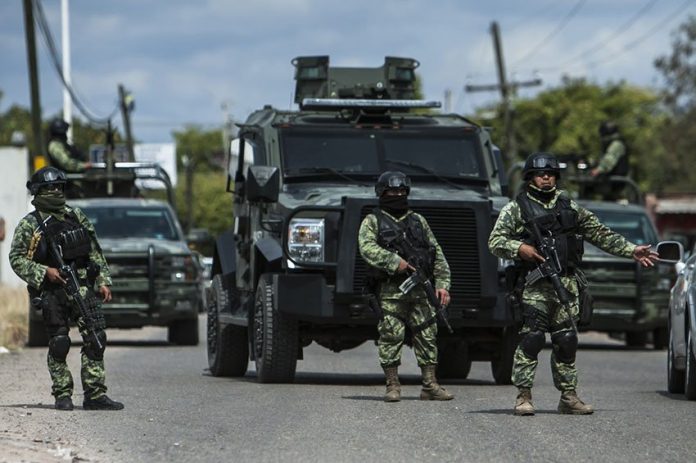Amnesty International and a range of other non-governmental organizations have rejected the creation of a national guard as proposed in the incoming government’s new national security plan.
The 50,000-strong force, which will be made up of members of the army, navy and Federal Police, is a central element of the new plan that was presented Wednesday by president-elect López Obrador and future public security secretary Alfonso Durazo.
Ericka Guevara Rosas, Americas director at Amnesty International (AI), said the incoming government’s plan represents a continuation of the “failed” militarized crime-fighting strategy that was first implemented by former president Felipe Calderón in 2006 and continued by the current government.
“It’s worrying that the president-elect has proposed a security strategy that essentially repeats the failed model of militarization that has allowed the armed forces to commit grave human rights violations,” she said.
Guevara charged that a Supreme Court ruling this week that the Internal Security Law is unconstitutional represented an opportunity for the new government to develop a plan to withdraw the military from public security duties rather than to perpetuate its role.
The law, which sought to formalize the role of the military in law enforcement, had been described by the United Nations High Commissioner for Human Rights as “deeply worrying.”
Shortly after López Obrador’s victory in the July 1 election, Durazo indicated that the incoming government would gradually withdraw the military from the nation’s streets. But both he and López Obrador have since backtracked.
Tania Reneaum, executive director of AI in Mexico, was also critical of the new security approach.
“The new government should break the paradigm of military security and establish a new model. Civil institutions should be responsible for security in the country and maintain the control of operations. The president-elect’s proposal to continue militarization should be amended to instead focus on the strengthening and professionalization of civil police forces,” she said.
The head of México Unido Contra la Delincuencia (Mexico United Against Crime) also charged that the strategy was wrong, stating that the creation of a national guard will not help to reduce violence or crime in general because it continues the same strategy that hasn’t worked for the past 12 years.
“The only thing that has happened [since 2006] is that homicidal violence increased and criminality doesn’t fall,” Lisa Sánchez said.
The president of the National Human Rights Commission (CNDH) said he would always favor using civil rather than military forces for public security duties while the Mexican Commission for the Defense and Promotion of Human Rights said the plan was cause for significant concern because the increase in violence is “related to the involvement of armed forces in security tasks.”
Francisco Rivas, president of the National Citizens’ Observatory, said that continuing to put the military in charge of public security duties wouldn’t solve the country’s problems, adding that the new plan “contradicts what López Obrador said for years as an opposition candidate and what he promised in the campaign.”
More than 200,000 homicides have been recorded since the militarized war on drugs strategy began 12 years ago and last year was the most violent year in at least two decades with 31,174 murders, according to the National Statistics Institute.
Meanwhile, the United Nations (UN) has asked both houses of federal Congress to reject a López Obrador proposal to widen the range of serious crimes for which suspected criminals can be remanded in preventative custody.
People accused of crimes such as fuel theft, possession of illegal weapons and electoral fraud would not be eligible for bail.
At least 19 constitutional amendments are being considered by Congress, which since September has been controlled by a coalition led by the soon-to-be ruling Morena party.
Alan García of the Mexico Office of the UN High Commissioner for Human Rights said that “pre-trial detention violates international human rights treaties to which the Mexican state is party.”
Source: Milenio (sp)
